AgriChain
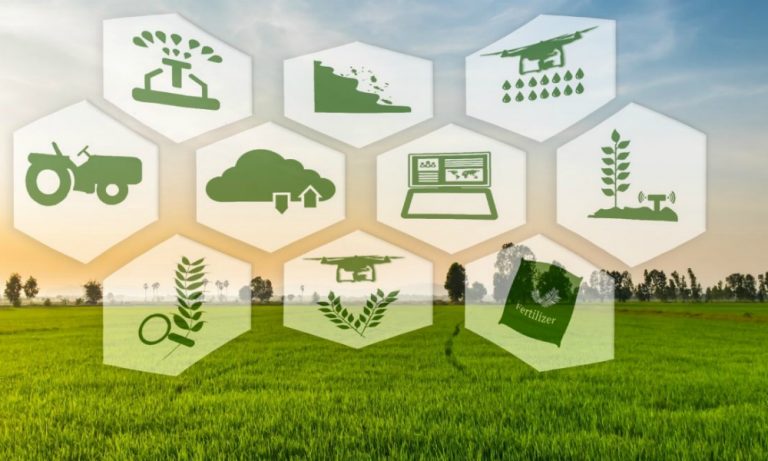 Agriculture is an activity that covers the livelihoods of many people, from food, clothing, shelter, and other needs. Agricultural production activities have experienced progress, from the beginning, until this century. In the last decade, there has been very rapid progress in the digital world, which has also penetrated agricultural activities.
Digital technologies have the potential to revolutionize agriculture by helping farmers work more precisely, efficiently, and sustainably. Digital transformation in agriculture refers to the adoption of digital technologies such as mobile/internet connectivity, robotics with artificial intelligence (AI), big-data, cloud computing, the Internet of Things (IoT), blockchain/Distributed Ledger Technology (DLT), and E-Commerce.
Digital decentralization by implementing blockchain technology in agricultural digital transformation comes with many benefits, such as quality control, food safety, and food wastage management. Some of the most consequential advantages for all the stakeholders : Transparency & Traceability; Safety & Security; Customer Engagement; and Tracking Pathway.
Agriculture is an activity that covers the livelihoods of many people, from food, clothing, shelter, and other needs. Agricultural production activities have experienced progress, from the beginning, until this century. In the last decade, there has been very rapid progress in the digital world, which has also penetrated agricultural activities.
Digital technologies have the potential to revolutionize agriculture by helping farmers work more precisely, efficiently, and sustainably. Digital transformation in agriculture refers to the adoption of digital technologies such as mobile/internet connectivity, robotics with artificial intelligence (AI), big-data, cloud computing, the Internet of Things (IoT), blockchain/Distributed Ledger Technology (DLT), and E-Commerce.
Digital decentralization by implementing blockchain technology in agricultural digital transformation comes with many benefits, such as quality control, food safety, and food wastage management. Some of the most consequential advantages for all the stakeholders : Transparency & Traceability; Safety & Security; Customer Engagement; and Tracking Pathway. Digital Transformation
Internet of Things
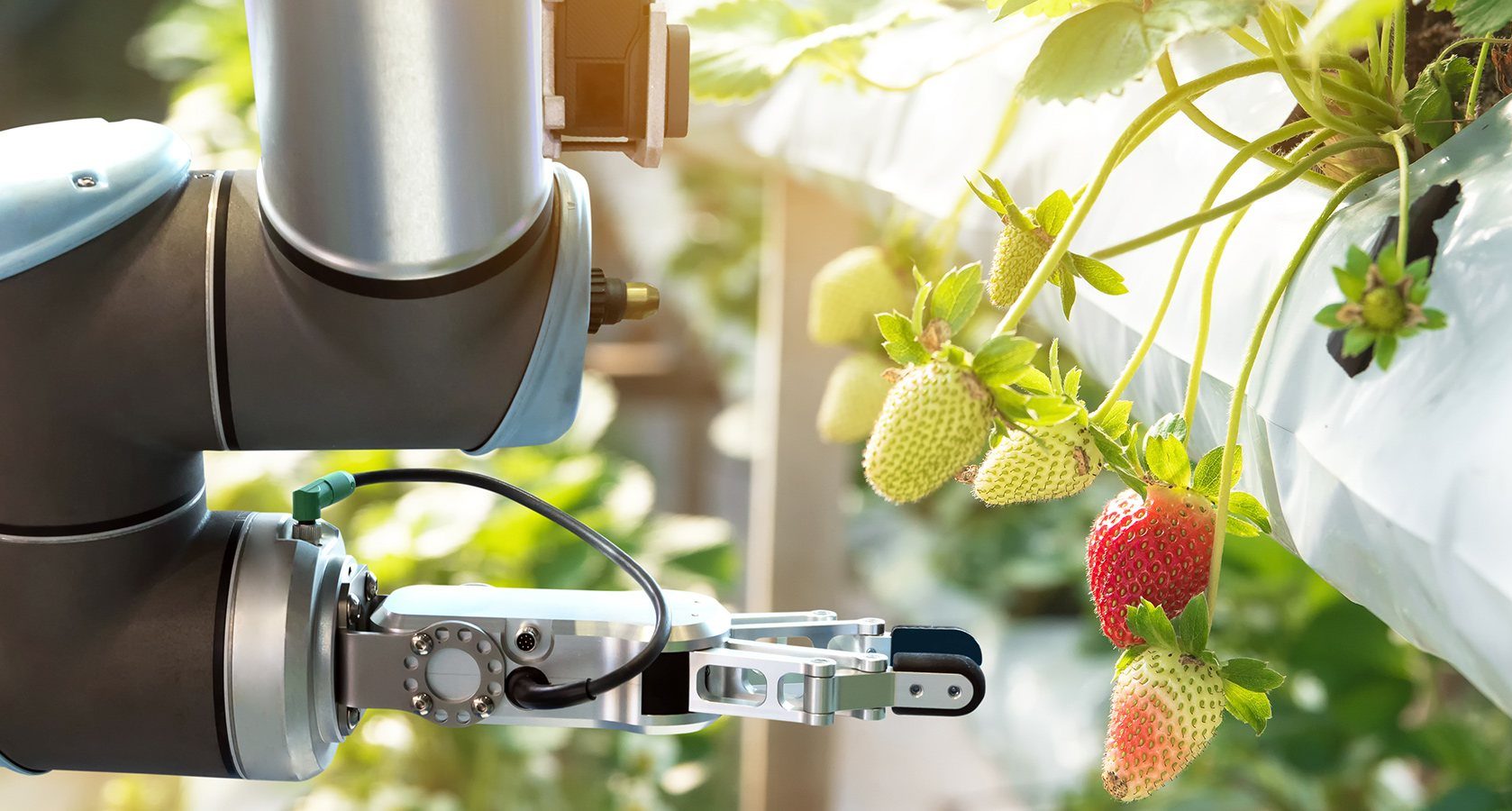
Internet of Things in agriculture refers to the use of smart devices and sensors to monitor the farming process, from planting to harvesting and distribution. IoT technology for agriculture allows farmers to automate real-time data collection, increase production volumes, reduce costs, improve efficiency, and make wise agricultural decisions. IoT devices can connect and interact with each other and the internet, and can send alerts or automate other devices, such as sprinklers or tractors.
Internet of Things (IoT) technology has several applications in agriculture, including field automation of crop and animal production and automation of agriculture and food supply chain. Such applications offer farmers with data-enabled and practical means for interactively managing their production in a more effective and efficient way.
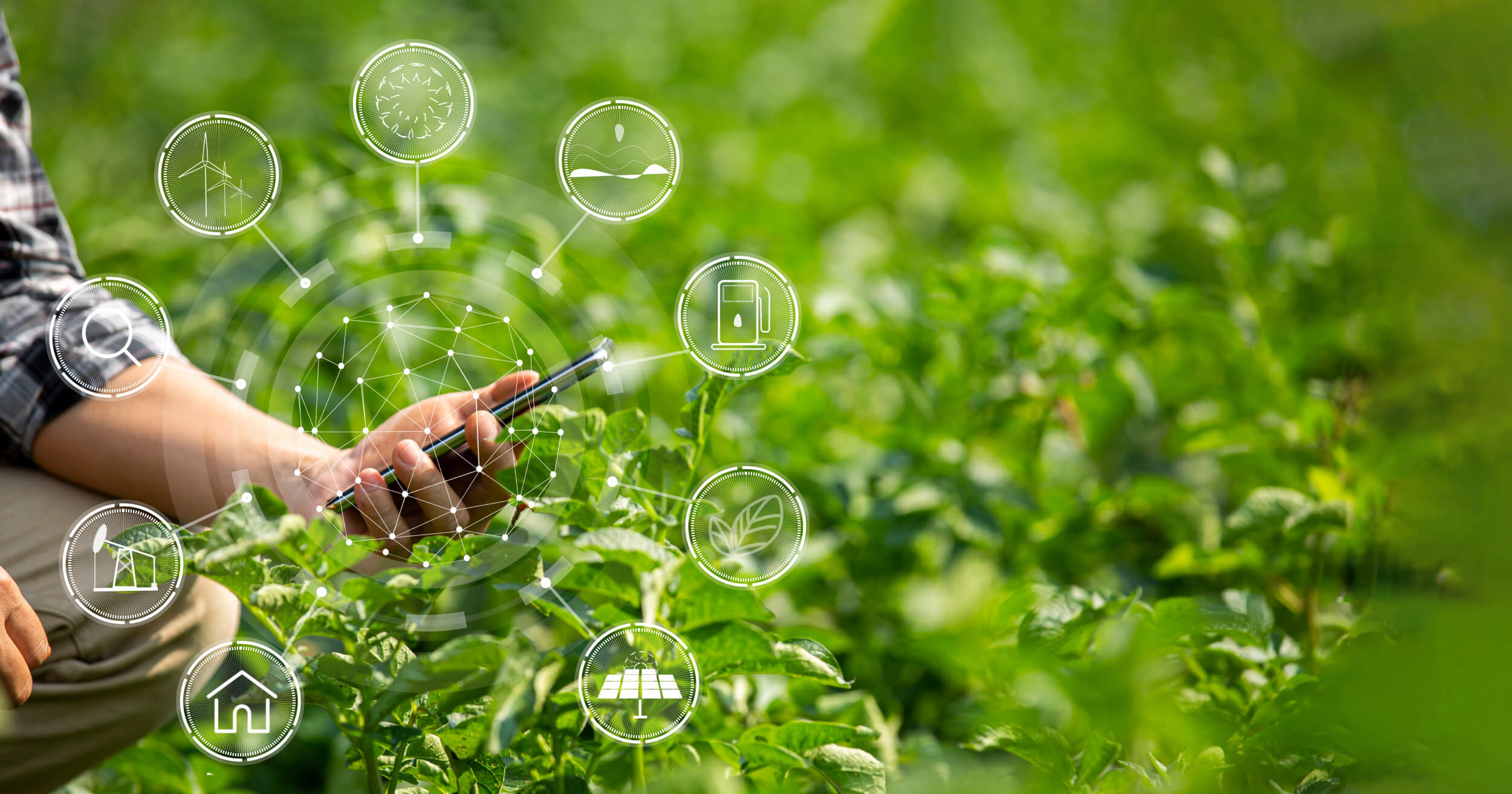
Internet of Things devices can be used to monitor crops, survey and map fields, and provide data to farmers for rational farm management plans to save both time and money. For instance, IoT devices can be used to monitor soil moisture, temperature, and nutrient levels, and provide real-time data to farmers, enabling them to make informed decisions about irrigation, fertilization, and other farming practices.
IoT technology can also be used to monitor the health and well-being of livestock, and to track the location and movement of animals. This can help farmers to identify and treat sick animals more quickly, and to prevent the spread of diseases.
Big Data
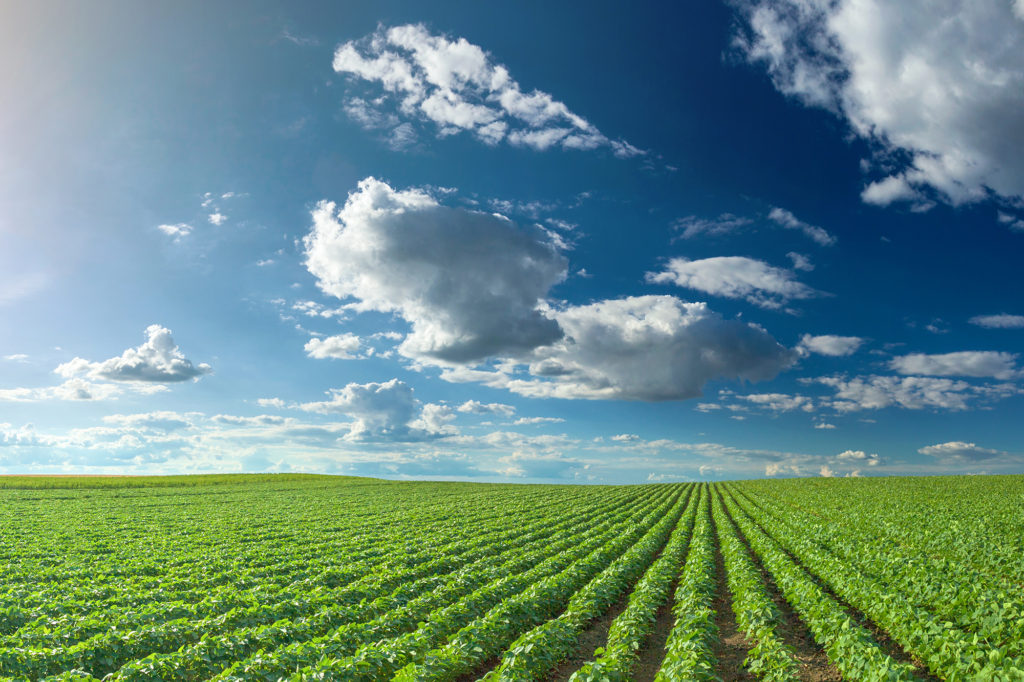 Big data in agriculture refers to the use of technology and analytics to collect, process, and provide useful information to farmers and scientists. Big data can help the agriculture industry to monitor natural trends, predict crop yields, automate farming processes, improve efficiency, and assess risks.
The term agricultural big data refers to the large amounts of data generated by various sources in the agricultural sector, such as sensors, drones, satellites, and other IoT devices. These data are then processed and analyzed using machine learning algorithms to extract insights and patterns that can be used to improve crop yields, reduce waste, and optimize resource utilization.
Agricultural big data is a complex field that requires expertise in data science, machine learning, and agriculture. It involves the collection, storage, processing, and analysis of large amounts of data from various sources, including weather data, soil data, crop data, and market data. The goal of agricultural big data is to provide farmers with actionable insights that can help them make better decisions and improve their yields.
Big data in agriculture refers to the use of technology and analytics to collect, process, and provide useful information to farmers and scientists. Big data can help the agriculture industry to monitor natural trends, predict crop yields, automate farming processes, improve efficiency, and assess risks.
The term agricultural big data refers to the large amounts of data generated by various sources in the agricultural sector, such as sensors, drones, satellites, and other IoT devices. These data are then processed and analyzed using machine learning algorithms to extract insights and patterns that can be used to improve crop yields, reduce waste, and optimize resource utilization.
Agricultural big data is a complex field that requires expertise in data science, machine learning, and agriculture. It involves the collection, storage, processing, and analysis of large amounts of data from various sources, including weather data, soil data, crop data, and market data. The goal of agricultural big data is to provide farmers with actionable insights that can help them make better decisions and improve their yields. Artificial Intelligence
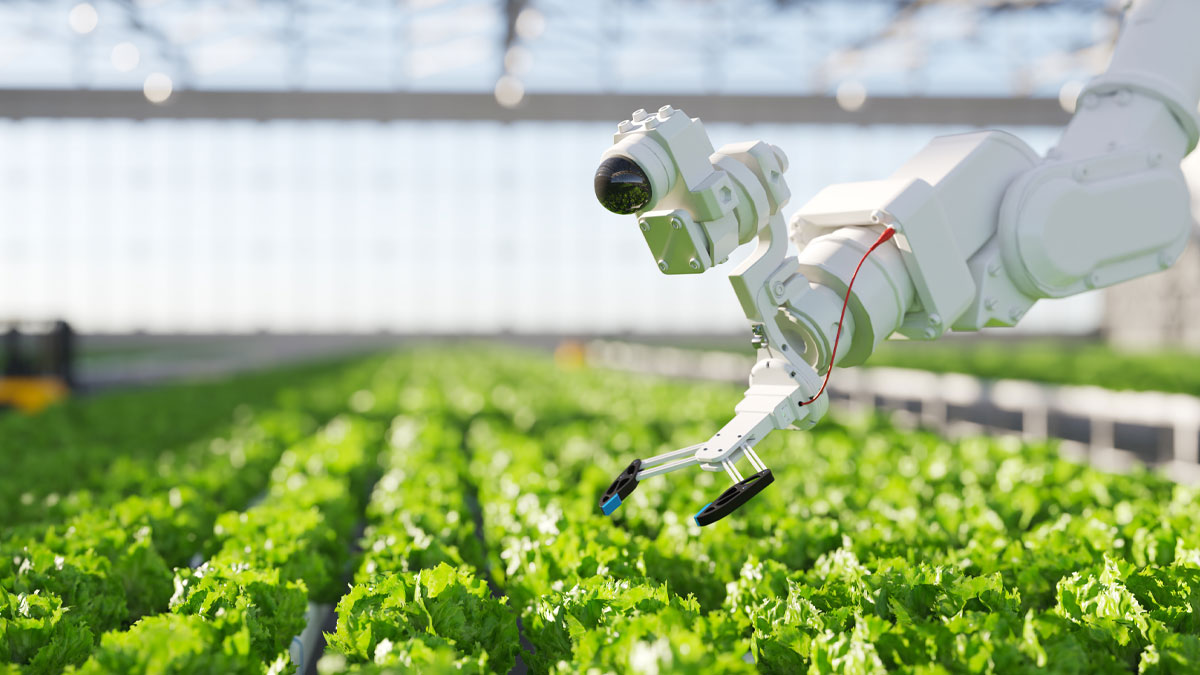 Artificial Intelligence (AI) in agriculture refers to using machine learning algorithms and other AI technologies to analyze data and make predictions and recommendations related to agricultural operations1. Farmers use AI for methods such as precision agriculture, which can monitor crop moisture, soil composition, and temperature in growing areas, enabling farmers to increase their yields by learning how to take care of their crops and determine the ideal amount of water or fertilizer to use. AI can provide farmers with real-time insights from their fields, allowing them to identify areas that need irrigation, fertilization, or pesticide treatment.
Artificial Intelligence (AI) can also help farmers reduce waste and improve sustainability by analyzing data on water usage, fertilizer application, and other resources, reducing waste and minimizing their environmental impact. AI has the ability to transform 21st century agriculture by increasing efficiency of time, labor, and resources, improving environmental sustainability, and making resource allocation “smarter”. AI has improved crop production and real-time monitoring, harvesting, processing, and marketing, saving the agriculture sector from different factors such as climate change, population growth, employment issues, and food safety.
Artificial Intelligence (AI) in agriculture refers to using machine learning algorithms and other AI technologies to analyze data and make predictions and recommendations related to agricultural operations1. Farmers use AI for methods such as precision agriculture, which can monitor crop moisture, soil composition, and temperature in growing areas, enabling farmers to increase their yields by learning how to take care of their crops and determine the ideal amount of water or fertilizer to use. AI can provide farmers with real-time insights from their fields, allowing them to identify areas that need irrigation, fertilization, or pesticide treatment.
Artificial Intelligence (AI) can also help farmers reduce waste and improve sustainability by analyzing data on water usage, fertilizer application, and other resources, reducing waste and minimizing their environmental impact. AI has the ability to transform 21st century agriculture by increasing efficiency of time, labor, and resources, improving environmental sustainability, and making resource allocation “smarter”. AI has improved crop production and real-time monitoring, harvesting, processing, and marketing, saving the agriculture sector from different factors such as climate change, population growth, employment issues, and food safety. Robotics
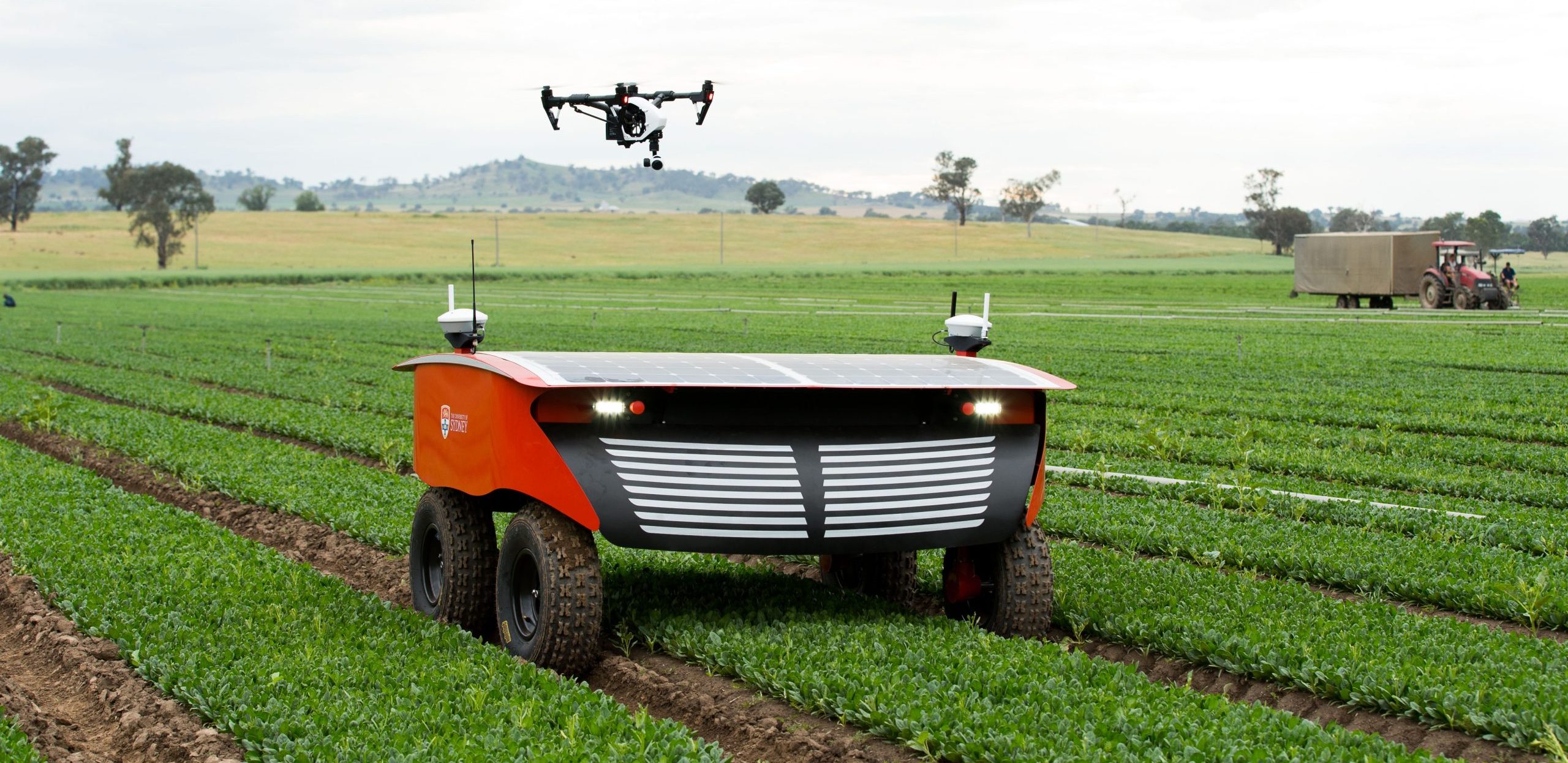 Robotics in Agriculture, Agricultural robots are robots that are designed to automate tasks such as crop harvesting, weeding, mowing, and more. They use AI, computer vision, and other technologies to improve efficiency and sustainability.
According to a source, “robotics in agriculture is a field that aims to improve the efficiency, profitability, and sustainability of agricultural processes. Robots can perform various tasks such as planting, spraying, harvesting, sorting, and monitoring crops and soil. They can also use sensors, data analytics, and artificial intelligence to optimize production and reduce waste. Robotics in agriculture is a response to the challenges of labor shortages, consumer demand, and high production costs”.
Robotics in Agriculture, Agricultural robots are robots that are designed to automate tasks such as crop harvesting, weeding, mowing, and more. They use AI, computer vision, and other technologies to improve efficiency and sustainability.
According to a source, “robotics in agriculture is a field that aims to improve the efficiency, profitability, and sustainability of agricultural processes. Robots can perform various tasks such as planting, spraying, harvesting, sorting, and monitoring crops and soil. They can also use sensors, data analytics, and artificial intelligence to optimize production and reduce waste. Robotics in agriculture is a response to the challenges of labor shortages, consumer demand, and high production costs”. Cloud Computing
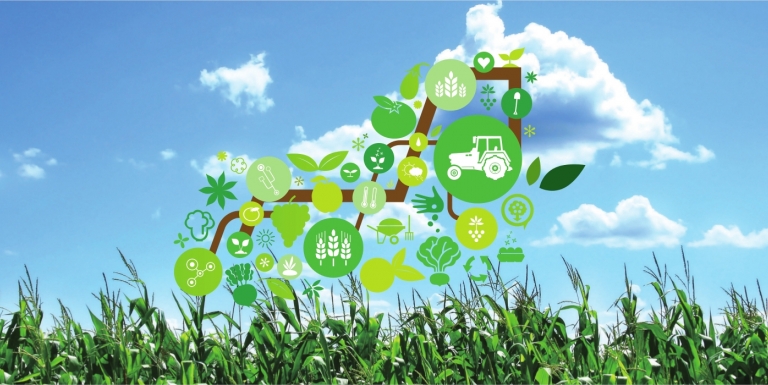 Cloud computing in agriculture refers to the use of cloud-based wireless sensors and machine learning algorithms to monitor and optimize everything from equipment and fertilizer to water and soil. Often cloud computing is used to collect, analyze and store agriculture data.
This helps farmers fine-tune their operations to pursue more profits, less pollution, and mitigate their environmental impact by engaging in climate-friendly farming practices like organic farming, which uses less energy and produces less pollution than conventional farming, and carbon sequestration, whereby they plant crops that naturally remove carbon dioxide from the air and store it in the soil.
Cloud computing can also be used to aggregate data from tools like soil sensors, satellite images, and weather stations to help farmers make better decisions about managing their crops. The cloud’s analytical capabilities also aid farmers in understanding their production environment.
Cloud computing in agriculture refers to the use of cloud-based wireless sensors and machine learning algorithms to monitor and optimize everything from equipment and fertilizer to water and soil. Often cloud computing is used to collect, analyze and store agriculture data.
This helps farmers fine-tune their operations to pursue more profits, less pollution, and mitigate their environmental impact by engaging in climate-friendly farming practices like organic farming, which uses less energy and produces less pollution than conventional farming, and carbon sequestration, whereby they plant crops that naturally remove carbon dioxide from the air and store it in the soil.
Cloud computing can also be used to aggregate data from tools like soil sensors, satellite images, and weather stations to help farmers make better decisions about managing their crops. The cloud’s analytical capabilities also aid farmers in understanding their production environment. Blockchain
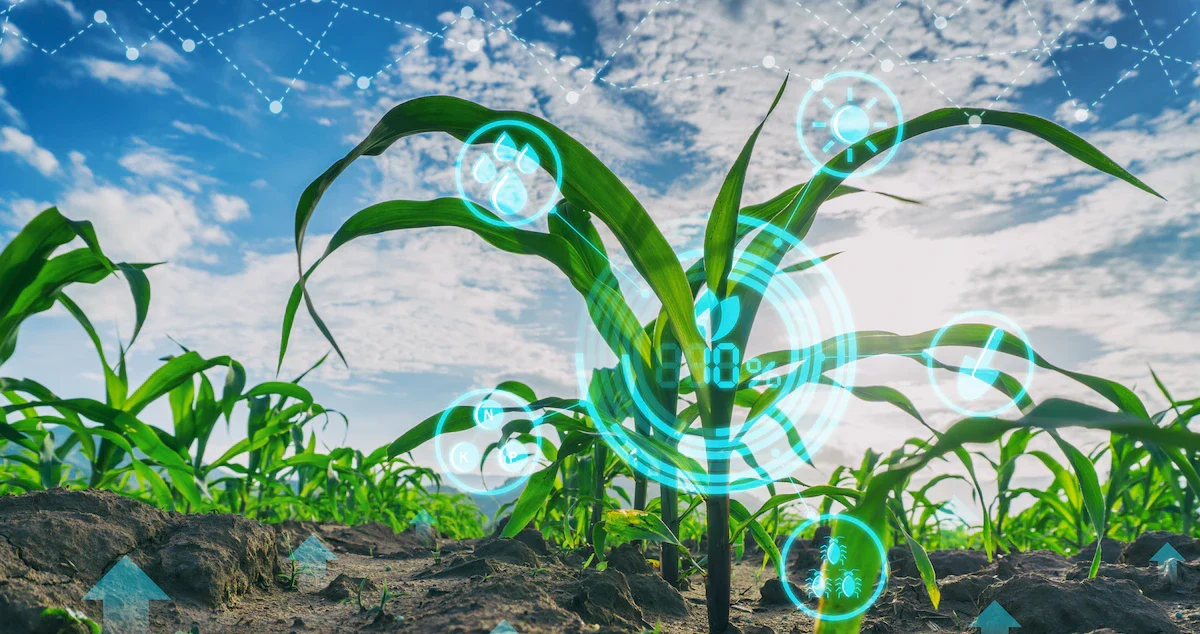 Blockchain in agriculture refers to agriculture and agribusiness being done with blockchain technology. Basically, all the stakeholders, such as farmers, farm produce wholesalers, food processing industries, and the supply chain operators involved in every step from “farm to our plates”, are using Blockchain technology in agriculture and agribusiness.
Blockchain is a distributed incorruptible ledger that keeps track of accounts and transactions related to everyone involved in agriculture and core farming. Transparency, traceability, accountability, and incorruptible nature are three core strengths of blockchain that make it of immense importance in modern-day farming.
Blockchain in agriculture refers to agriculture and agribusiness being done with blockchain technology. Basically, all the stakeholders, such as farmers, farm produce wholesalers, food processing industries, and the supply chain operators involved in every step from “farm to our plates”, are using Blockchain technology in agriculture and agribusiness.
Blockchain is a distributed incorruptible ledger that keeps track of accounts and transactions related to everyone involved in agriculture and core farming. Transparency, traceability, accountability, and incorruptible nature are three core strengths of blockchain that make it of immense importance in modern-day farming. E-commerce
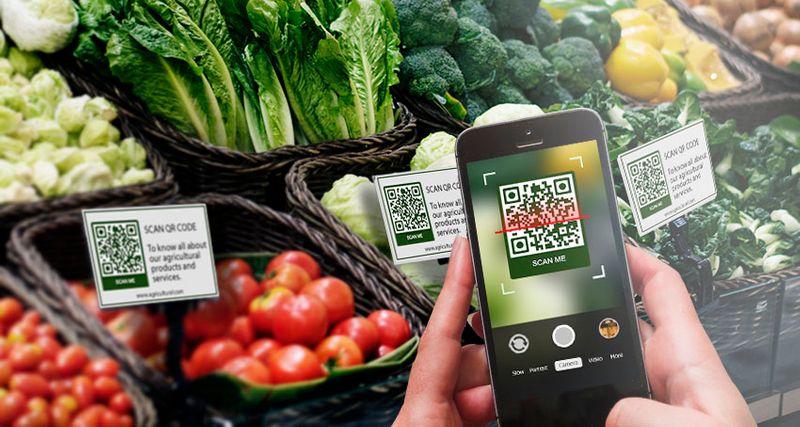 E-commerce in agriculture refers to the utilization of online platforms and digital technologies to facilitate the buying and selling of agricultural products and services. This concept aims to create direct farmer-buyer links with less or no brokerage, which helps farmers invest in ways that increase yield.
E-commerce provides agricultural businesses with access to a global market, allowing them to reach new customers and expand their reach beyond traditional geographic boundaries. It also provides consumers with access to a wider range of products and allows them to purchase products from the comfort of their own homes. To succeed, agri e-commerce businesses require scalable and sustainable business models that reflect local market conditions.
E-commerce in agriculture refers to the utilization of online platforms and digital technologies to facilitate the buying and selling of agricultural products and services. This concept aims to create direct farmer-buyer links with less or no brokerage, which helps farmers invest in ways that increase yield.
E-commerce provides agricultural businesses with access to a global market, allowing them to reach new customers and expand their reach beyond traditional geographic boundaries. It also provides consumers with access to a wider range of products and allows them to purchase products from the comfort of their own homes. To succeed, agri e-commerce businesses require scalable and sustainable business models that reflect local market conditions. 
Digital Decentralization
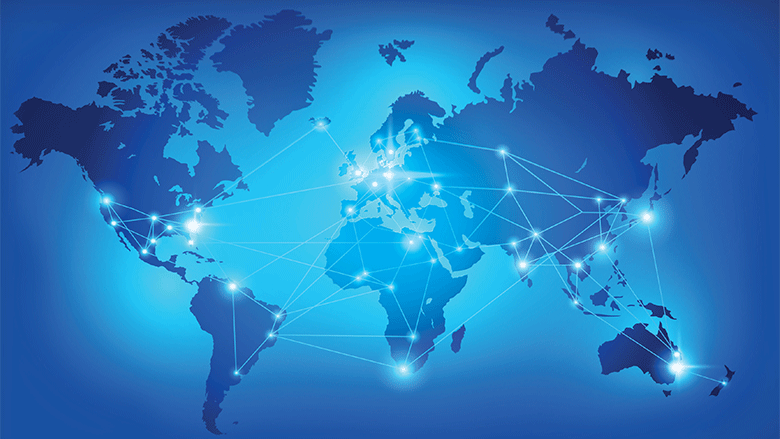
- Increased Security: Decentralized systems are more secure because they are not controlled by a single entity. In a centralized system, a single point of failure can lead to a catastrophic breach. Decentralization reduces this risk by distributing data and controls across a network.
- Improved Transparency: Decentralized systems are transparent because the data is stored on a public ledger that is accessible to everyone. This makes it easier to audit and verify transactions.
- Increased Efficiency: Decentralized systems can be more efficient because they eliminate the need for intermediaries. This can result in faster and cheaper transactions.
- More Democratic: Decentralization gives more power to individuals and communities, instead of centralized authorities. This can lead to a more democratic and equitable society.
- Innovation: Decentralization enables new types of applications and business models that were not possible with centralized systems. This can lead to innovation and new economic opportunities.
Decentralized Artificial Intelligence
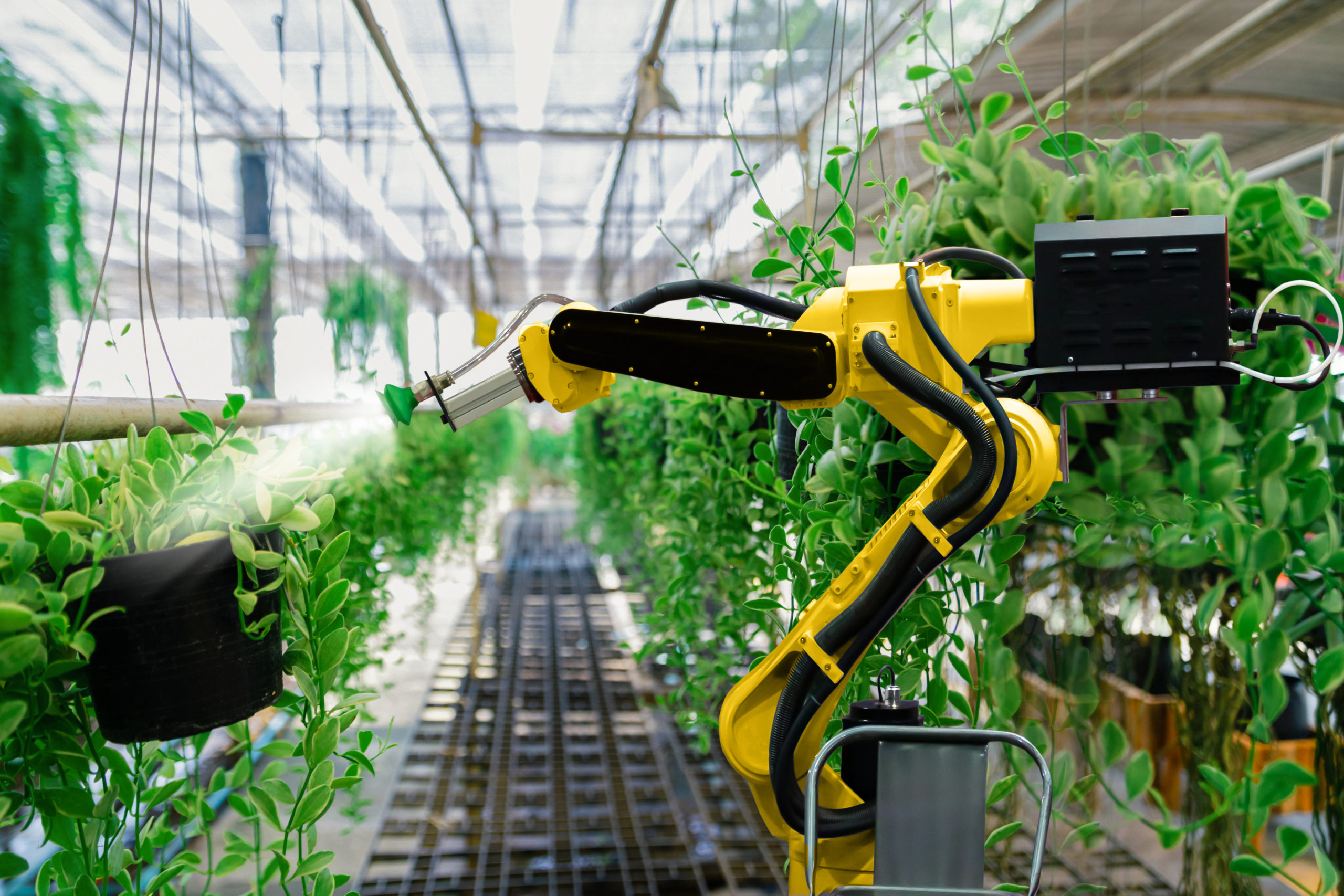 Decentralized Networks and Distributed Computing Power
Blockchain-based artificial intelligence, or decentralized AI projects, benefit from the openness and traceability of the shared ledger. This is because open Blockchain networks are publicly verifiable by anyone.
Decentralization can lead to increased innovation. In a centralized system, only a single entity is responsible for development and decision-making. However, in a decentralized system, many different entities can contribute to the development and improvement of the AI system, leading to a wider range of perspectives and more innovation.
Enhanced Data Privacy and Security
A blockchain-based artificial intelligence technology is more transparent than a closed AI system. Blockchains encrypt data so that only authorized users can access it. This prevents unauthorized parties from viewing anything. This also makes it easier to detect and prevent attacks, as any anomalies can be detected and addressed quickly by multiple nodes.
A decentralized AI system’s increased security can have a significant impact on the Metaverse. Blockchain technology’s transparency and accountability can aid in the development of trust between users and virtual entities in the Metaverse.
Decentralized Networks and Distributed Computing Power
Blockchain-based artificial intelligence, or decentralized AI projects, benefit from the openness and traceability of the shared ledger. This is because open Blockchain networks are publicly verifiable by anyone.
Decentralization can lead to increased innovation. In a centralized system, only a single entity is responsible for development and decision-making. However, in a decentralized system, many different entities can contribute to the development and improvement of the AI system, leading to a wider range of perspectives and more innovation.
Enhanced Data Privacy and Security
A blockchain-based artificial intelligence technology is more transparent than a closed AI system. Blockchains encrypt data so that only authorized users can access it. This prevents unauthorized parties from viewing anything. This also makes it easier to detect and prevent attacks, as any anomalies can be detected and addressed quickly by multiple nodes.
A decentralized AI system’s increased security can have a significant impact on the Metaverse. Blockchain technology’s transparency and accountability can aid in the development of trust between users and virtual entities in the Metaverse. Decentralized Internet of Things
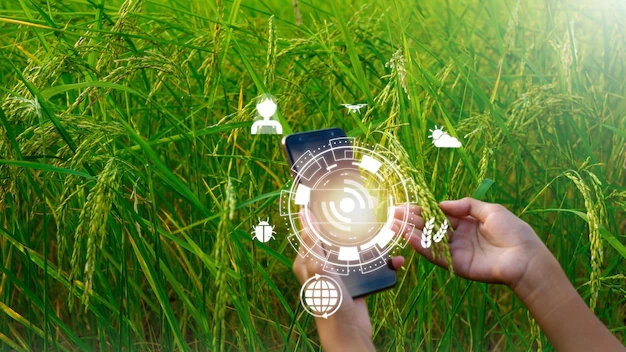 Decentralized Internet of Things (IoT) is a concept that combines the power of blockchain technology with IoT devices. It provides a secure, transparent, and decentralized communication model for billions of transactions. The decentralized IoT reduces infrastructure costs and provides a standard peer-to-peer communication model. Fog computing is used to handle and balance requests of connected IoT devices in order to reduce loading on the cloud servers and improve responsiveness for latency-sensitive IoT applications like vital signs monitoring of patients, vehicle-to-vehicle communication, etc.
The combination of blockchain technology and IoT provides a secure and reliable way to interact between different parties. The blockchain technology ensures transparent interactions between different parties, which are more secure and reliable thanks to distributed ledger and proof-of-work consensus algorithms.
Decentralized Internet of Things (IoT) is a concept that combines the power of blockchain technology with IoT devices. It provides a secure, transparent, and decentralized communication model for billions of transactions. The decentralized IoT reduces infrastructure costs and provides a standard peer-to-peer communication model. Fog computing is used to handle and balance requests of connected IoT devices in order to reduce loading on the cloud servers and improve responsiveness for latency-sensitive IoT applications like vital signs monitoring of patients, vehicle-to-vehicle communication, etc.
The combination of blockchain technology and IoT provides a secure and reliable way to interact between different parties. The blockchain technology ensures transparent interactions between different parties, which are more secure and reliable thanks to distributed ledger and proof-of-work consensus algorithms. Decentralized Cloud Computing
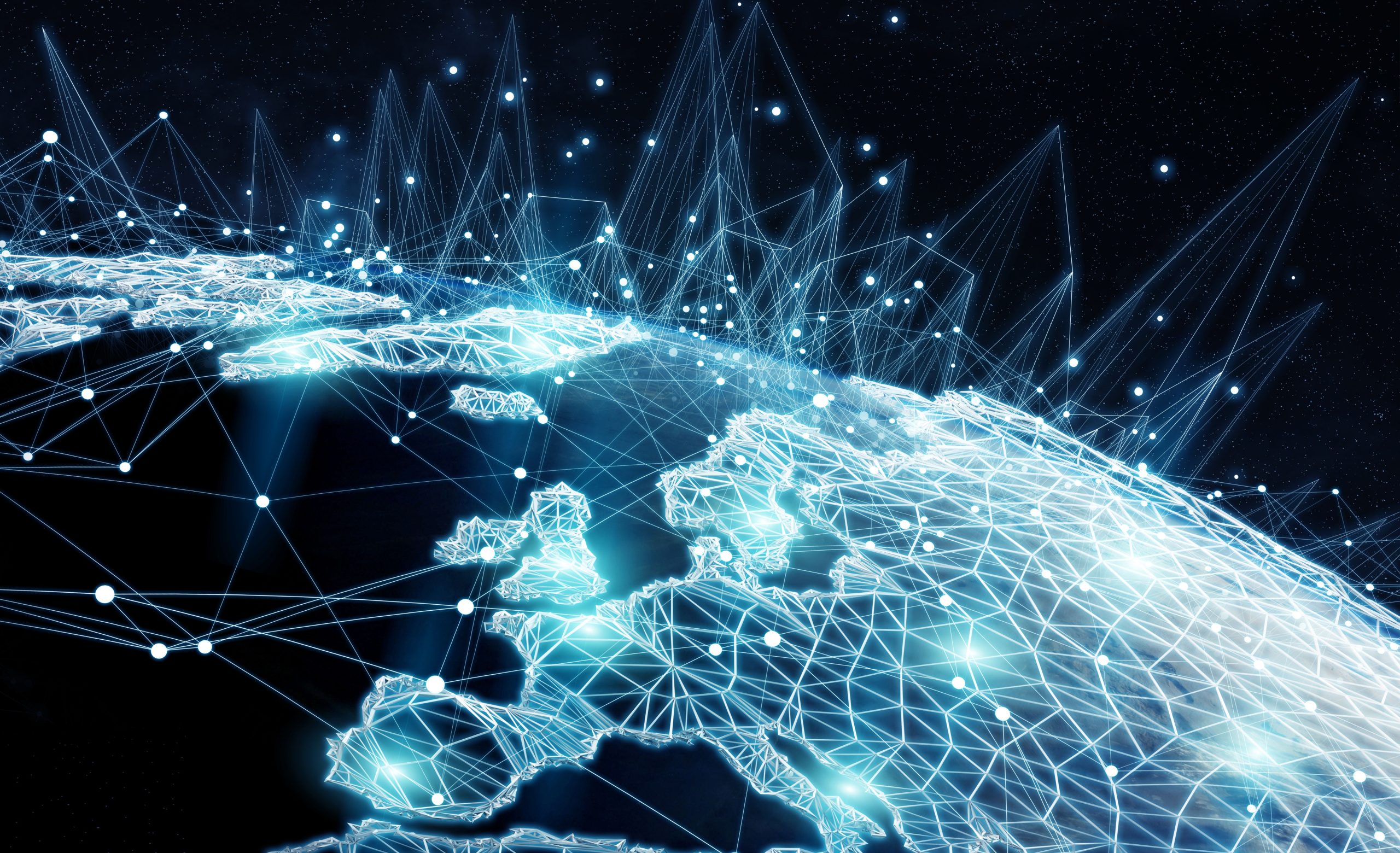 There are many advantages of a decentralized cloud :
First, edge computing makes the decentralized cloud faster, more efficient and more scalable. Localization provides close physical proximity to the server, so the required computing resources are quickly accessible.
Second, the decentralized cloud is more costefficient because it leverages unused computing resources.
Third, the decentralized cloud is more reliable. The redundancy across multiple nodes adds protection to ensure data integrity in case of an error in the storage or transmission of data and to prevent data loss.
Fourth, decentralization provides better security and privacy. Data are kept locally behind a firewall to protect their privacy and prevent exfiltration. Data are not duplicated to third-party servers or secondary locations. Thus, the risk of data compromise is reduced.
In the decentralized cloud, end-to-end encryption is standard, making security much stronger. Each piece of data is only a small portion of the whole, so even if one piece of data is hacked, the whole is not compromised. In addition, each piece of data is encrypted locally before it is uploaded and spread out to uncorrelated nodes across the cloud. Only the user has access to the encryption keys, making it virtually impossible for data to be compromised or stolen.
There are many advantages of a decentralized cloud :
First, edge computing makes the decentralized cloud faster, more efficient and more scalable. Localization provides close physical proximity to the server, so the required computing resources are quickly accessible.
Second, the decentralized cloud is more costefficient because it leverages unused computing resources.
Third, the decentralized cloud is more reliable. The redundancy across multiple nodes adds protection to ensure data integrity in case of an error in the storage or transmission of data and to prevent data loss.
Fourth, decentralization provides better security and privacy. Data are kept locally behind a firewall to protect their privacy and prevent exfiltration. Data are not duplicated to third-party servers or secondary locations. Thus, the risk of data compromise is reduced.
In the decentralized cloud, end-to-end encryption is standard, making security much stronger. Each piece of data is only a small portion of the whole, so even if one piece of data is hacked, the whole is not compromised. In addition, each piece of data is encrypted locally before it is uploaded and spread out to uncorrelated nodes across the cloud. Only the user has access to the encryption keys, making it virtually impossible for data to be compromised or stolen. Decentralized E-Commerce
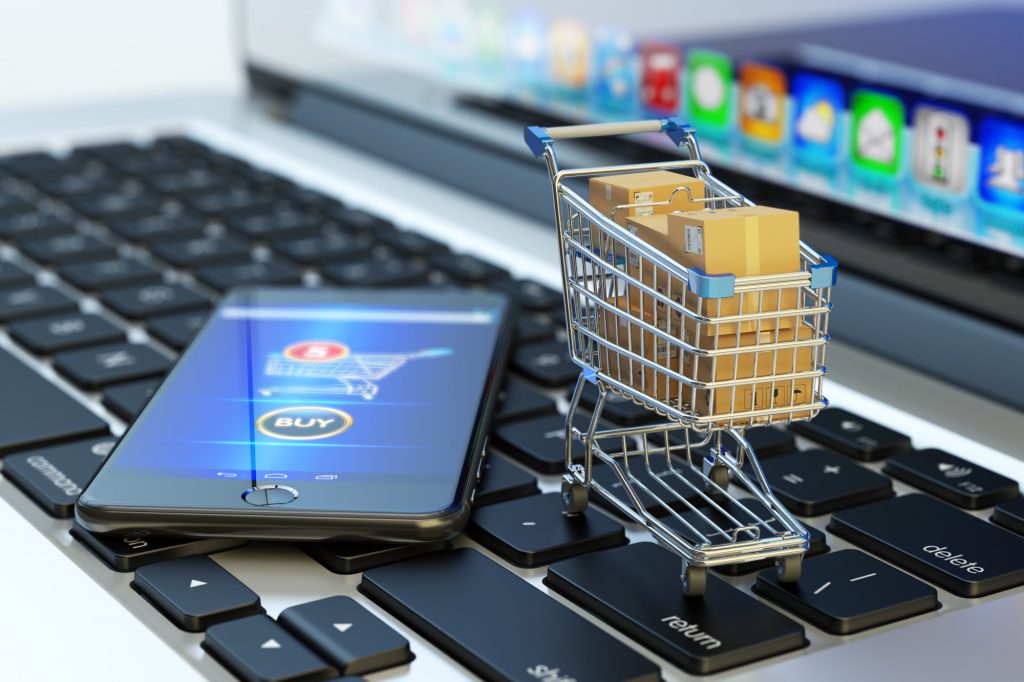 Decentralized e-commerce is a new and innovative way of conducting online transactions. It is based on the concept of decentralization, which eliminates the need for intermediaries, creating a direct connection between buyers and sellers. This is made possible through the use of blockchain technology and smart contracts, which allow users to process transactions without any centralized control, which charges high fees and can also block the transactions.
Decentralized e-commerce includes several categories such as electronic data interchange (EDI), electronic funds transfer (EFT), e-trade, e-cash, e-marketing, e-banking, and e-insurance.
Decentralized e-commerce has several advantages over centralized e-commerce. It prevents problems such as huge fees for working on trading platforms, cases of loss of consumers’ personal data, and unfair processing of transactions. The Barter Smartplace platform is a decentralized exchange for all types of NFTs, providing users with the opportunity to tokenize real and digital assets and place them on the exchange for barter, auction, or direct sale.
Decentralized e-commerce is a promising development in the world of online transactions, and it will be interesting to see how it evolves in the future.
Decentralized e-commerce is a new and innovative way of conducting online transactions. It is based on the concept of decentralization, which eliminates the need for intermediaries, creating a direct connection between buyers and sellers. This is made possible through the use of blockchain technology and smart contracts, which allow users to process transactions without any centralized control, which charges high fees and can also block the transactions.
Decentralized e-commerce includes several categories such as electronic data interchange (EDI), electronic funds transfer (EFT), e-trade, e-cash, e-marketing, e-banking, and e-insurance.
Decentralized e-commerce has several advantages over centralized e-commerce. It prevents problems such as huge fees for working on trading platforms, cases of loss of consumers’ personal data, and unfair processing of transactions. The Barter Smartplace platform is a decentralized exchange for all types of NFTs, providing users with the opportunity to tokenize real and digital assets and place them on the exchange for barter, auction, or direct sale.
Decentralized e-commerce is a promising development in the world of online transactions, and it will be interesting to see how it evolves in the future. Decentralized Big Data
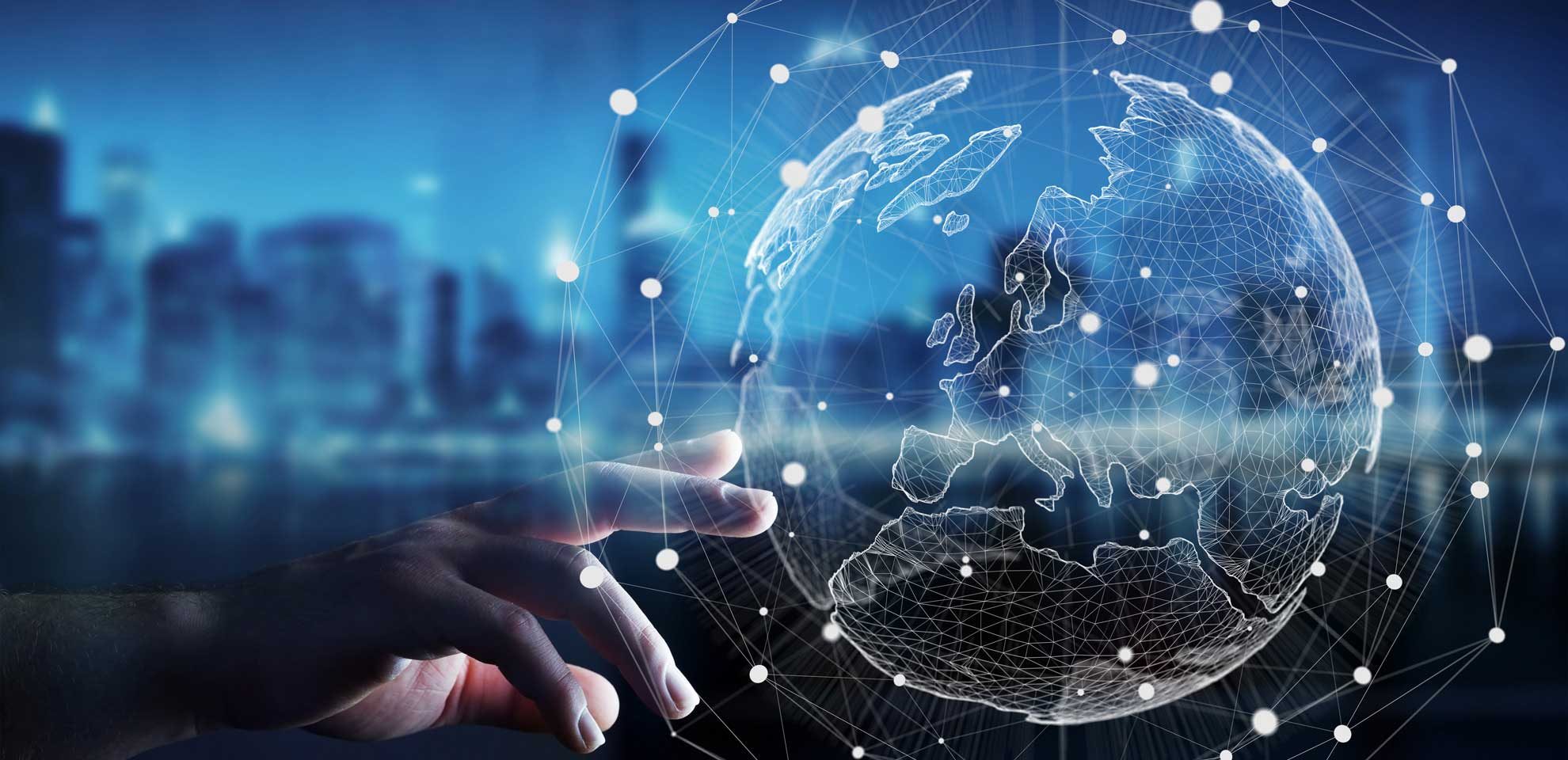 Decentralized data architecture and decentralized storage are two ways to decentralize big data:
Decentralized data architecture means the data from each domain is not copied but rather kept within the domain, and each domain has its own data models. Decentralized storage is a system of storing data on multiple decentralized clouds and servers instead of a single centralized location.
Another way to decentralize big data is to use a decentralized database. A decentralized database splits the workload up among multiple machines and uses sophisticated algorithms to balance the incoming and outgoing requests for the best response time.
Decentralized data architecture and decentralized storage are two ways to decentralize big data:
Decentralized data architecture means the data from each domain is not copied but rather kept within the domain, and each domain has its own data models. Decentralized storage is a system of storing data on multiple decentralized clouds and servers instead of a single centralized location.
Another way to decentralize big data is to use a decentralized database. A decentralized database splits the workload up among multiple machines and uses sophisticated algorithms to balance the incoming and outgoing requests for the best response time. Fair Agriculture
Avoid Data Bias
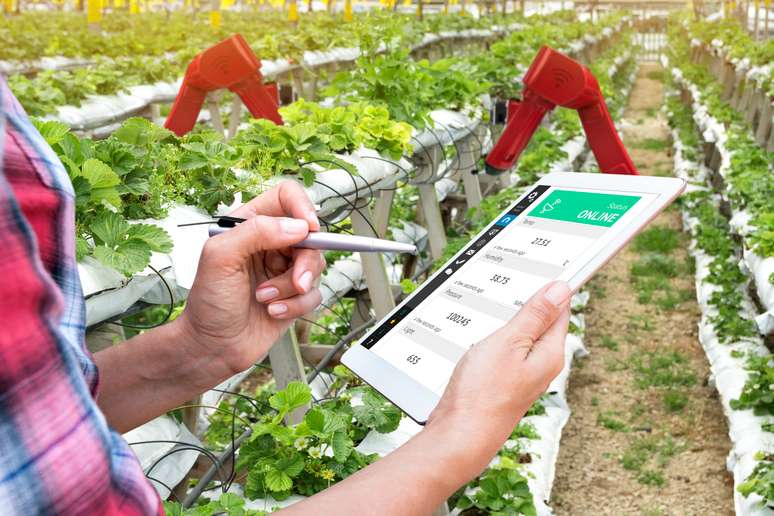 The use of data and information becomes increasingly crucial for the agriculture sector to improve productivity and sustainability. Information and Communication Technology (ICT) substantially increases the effectiveness and efficiency of collecting, storing, analyzing and using data in agriculture.
It allows agricultural practitioners and farming communities to easily obtain update-to-date information and thus make better decisions in their daily farming. For example, remotely sensed data on soil conditions can support farmers’ crop management, mobile phones reduce information cost and thus promote farmers’ access to markets and financial support, and the development of Global Positioning System (GPS) facilitates filed mapping and machinery guidance and crop scouting.
Information and Communication Technology does not avoid bias in the collection and use of data. An effective way of avoiding such bias is to make data manipulation difficult or even impossible by distributing the power of data management to a very large number of individuals.
The use of data and information becomes increasingly crucial for the agriculture sector to improve productivity and sustainability. Information and Communication Technology (ICT) substantially increases the effectiveness and efficiency of collecting, storing, analyzing and using data in agriculture.
It allows agricultural practitioners and farming communities to easily obtain update-to-date information and thus make better decisions in their daily farming. For example, remotely sensed data on soil conditions can support farmers’ crop management, mobile phones reduce information cost and thus promote farmers’ access to markets and financial support, and the development of Global Positioning System (GPS) facilitates filed mapping and machinery guidance and crop scouting.
Information and Communication Technology does not avoid bias in the collection and use of data. An effective way of avoiding such bias is to make data manipulation difficult or even impossible by distributing the power of data management to a very large number of individuals.
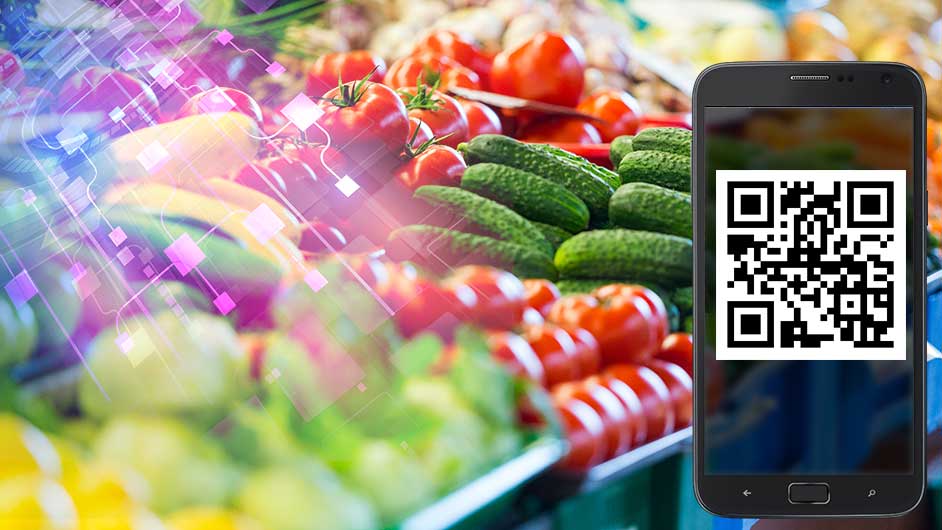 A blockchain is a ledger in which agents take turns recording information on the process of generating, transacting and consuming a product or service. The ledger is collectively managed by all participating parties typically through a peer-to-peer network. A new record must be verified by the network before adding it to the blockchain. Any alteration to the recorded data should follow consensus decision-making protocol, meaning the majority of the parties involved should agree. In addition, an alteration to one record will lead to the alteration of all its subsequent records.
It is, therefore, almost impossible to change in data recorded in a blockchain in practice. Blockchain is viewed as “an open, distributed ledger that can record transactions between two parties efficiently and in a verifiable and permanent way”. Blockchain is a transformative ICT that have the potential to revolutionized how data is used for agriculture.
A blockchain is a ledger in which agents take turns recording information on the process of generating, transacting and consuming a product or service. The ledger is collectively managed by all participating parties typically through a peer-to-peer network. A new record must be verified by the network before adding it to the blockchain. Any alteration to the recorded data should follow consensus decision-making protocol, meaning the majority of the parties involved should agree. In addition, an alteration to one record will lead to the alteration of all its subsequent records.
It is, therefore, almost impossible to change in data recorded in a blockchain in practice. Blockchain is viewed as “an open, distributed ledger that can record transactions between two parties efficiently and in a verifiable and permanent way”. Blockchain is a transformative ICT that have the potential to revolutionized how data is used for agriculture. Safety & Traceability
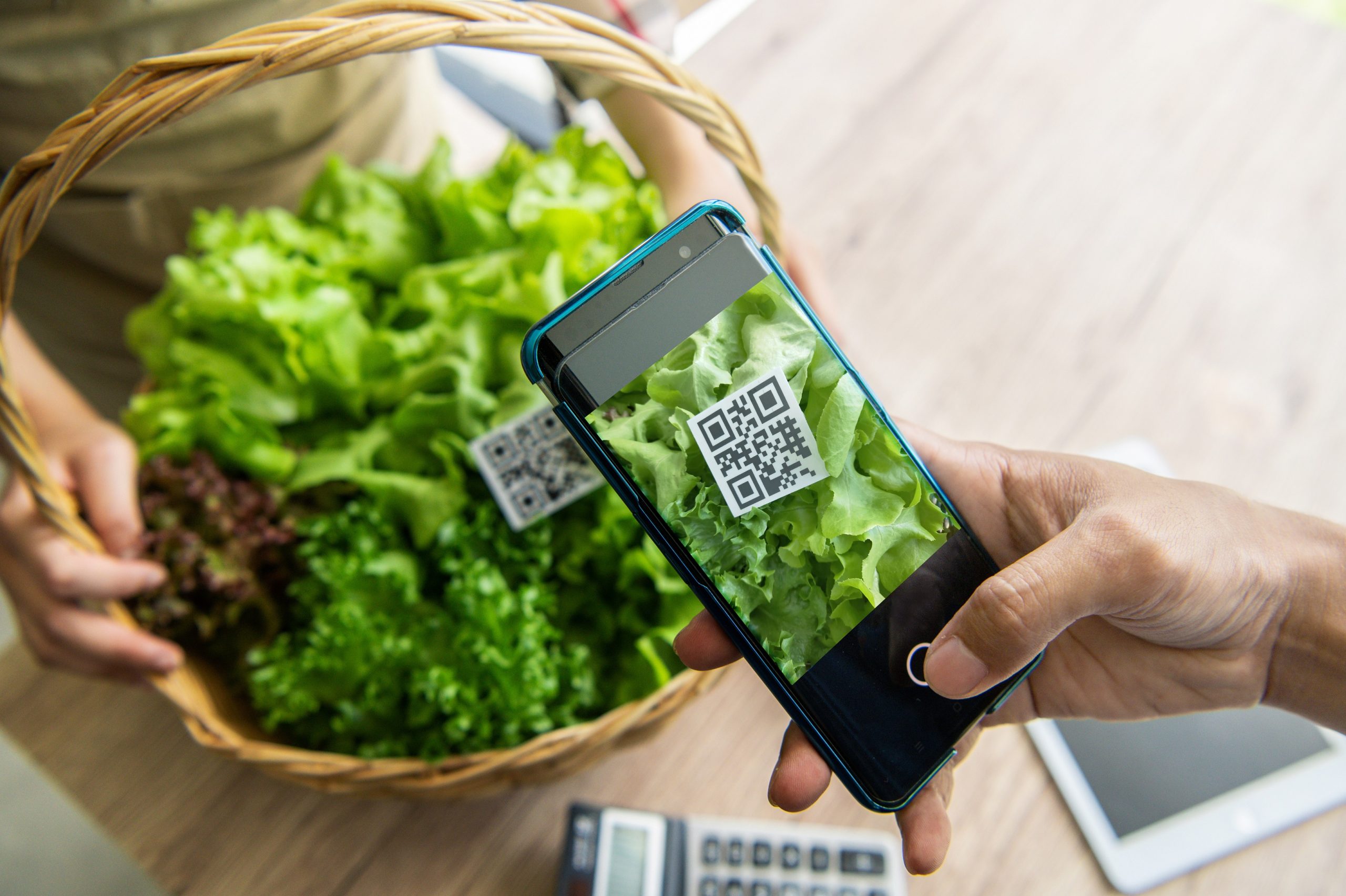 The blockchain technology allows peer-to-peer transactions to take place transparently and without the need for an intermediary like a bank (such as for cryptocurrencies) or a middleman in the agriculture sector. By eliminating the need for a central authority, the technology changes the way that trust is granted – instead of trusting an authority, trust is placed in cryptography and peer-to-peer architecture. It thus helps restore the trust between producers and consumers, which can reduce the transaction costs in the agri-food market.
The blockchain technology offers a reliable approach of tracing transactions between anonymous participants. Fraud and malfunctions can thus be detected quickly. Moreover, problems can be reported in real-time by incorporating smart contracts. This helps address the challenge of tracking products in the wide-reaching supply chain due to the complexity of the agri-food system. The technology thus provides solutions to issues of food quality and safety, which are highly concerned by consumers, government, etc.
The blockchain technology provides transparency among all involved parties and facilitates the collection of reliable data. Blockchain can record every step in a product’s value chain, ranging a product’s creation to its death. The reliable data of the farming process are highly valuable for developing data-driven facilities and insurance solutions for making farming smarter and less vulnerable.
The blockchain technology allows peer-to-peer transactions to take place transparently and without the need for an intermediary like a bank (such as for cryptocurrencies) or a middleman in the agriculture sector. By eliminating the need for a central authority, the technology changes the way that trust is granted – instead of trusting an authority, trust is placed in cryptography and peer-to-peer architecture. It thus helps restore the trust between producers and consumers, which can reduce the transaction costs in the agri-food market.
The blockchain technology offers a reliable approach of tracing transactions between anonymous participants. Fraud and malfunctions can thus be detected quickly. Moreover, problems can be reported in real-time by incorporating smart contracts. This helps address the challenge of tracking products in the wide-reaching supply chain due to the complexity of the agri-food system. The technology thus provides solutions to issues of food quality and safety, which are highly concerned by consumers, government, etc.
The blockchain technology provides transparency among all involved parties and facilitates the collection of reliable data. Blockchain can record every step in a product’s value chain, ranging a product’s creation to its death. The reliable data of the farming process are highly valuable for developing data-driven facilities and insurance solutions for making farming smarter and less vulnerable. 